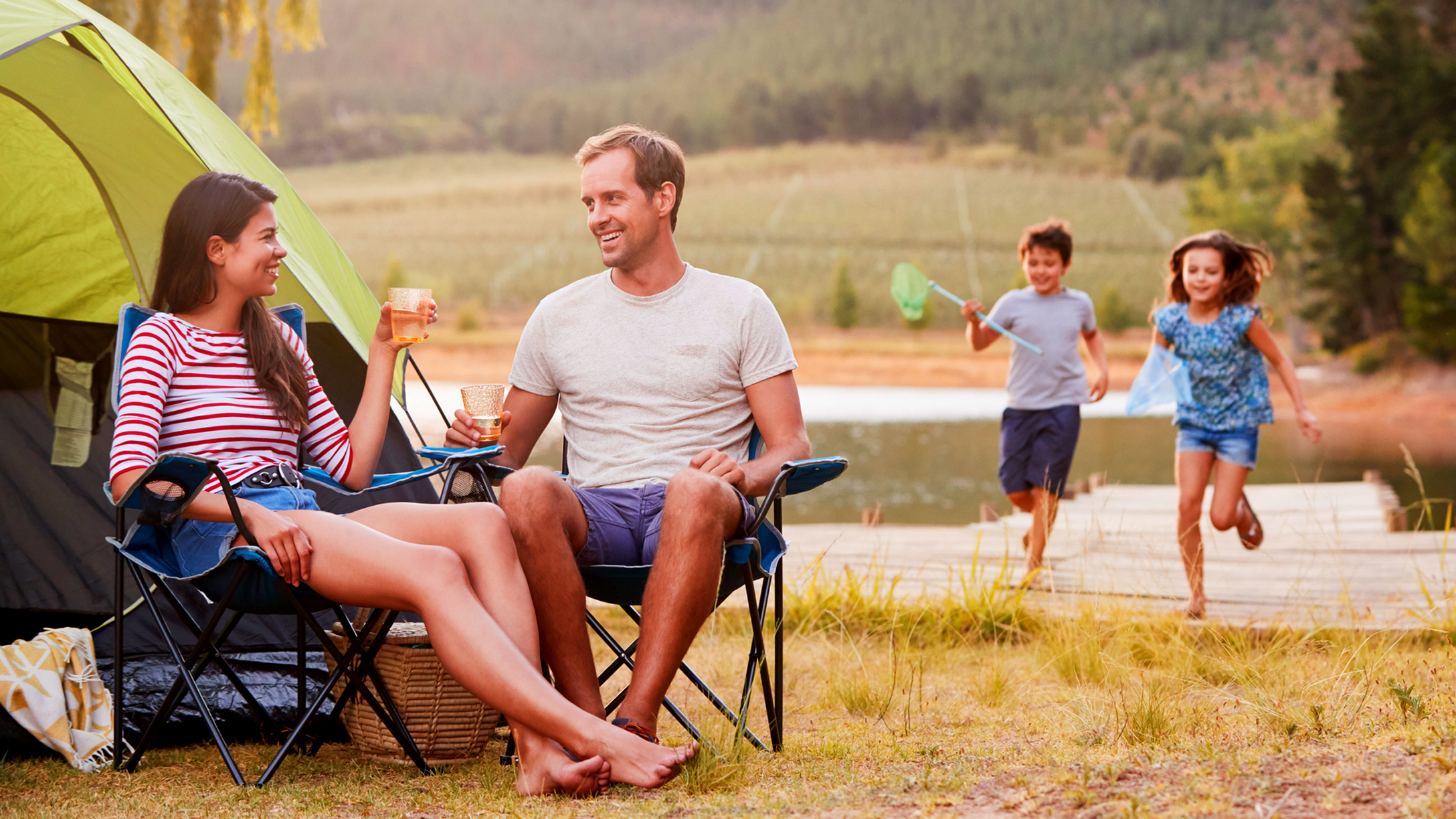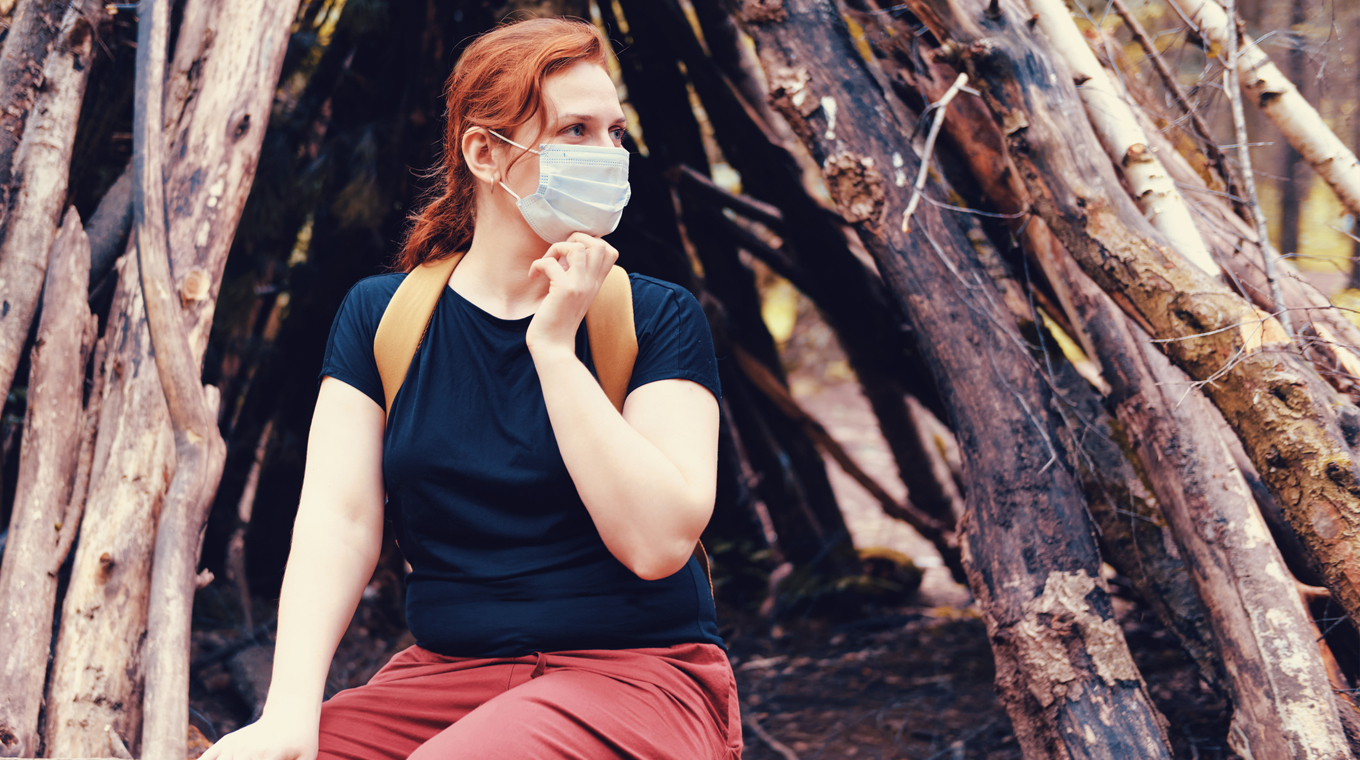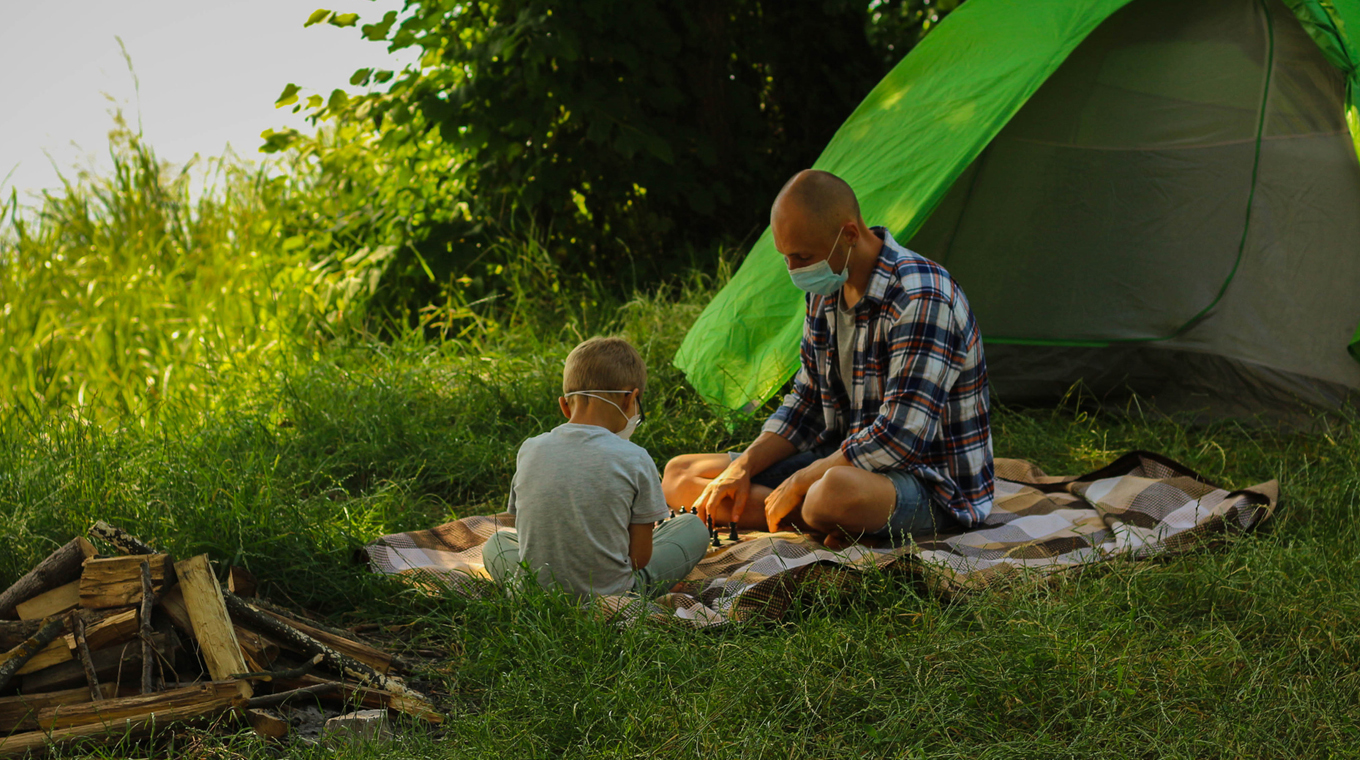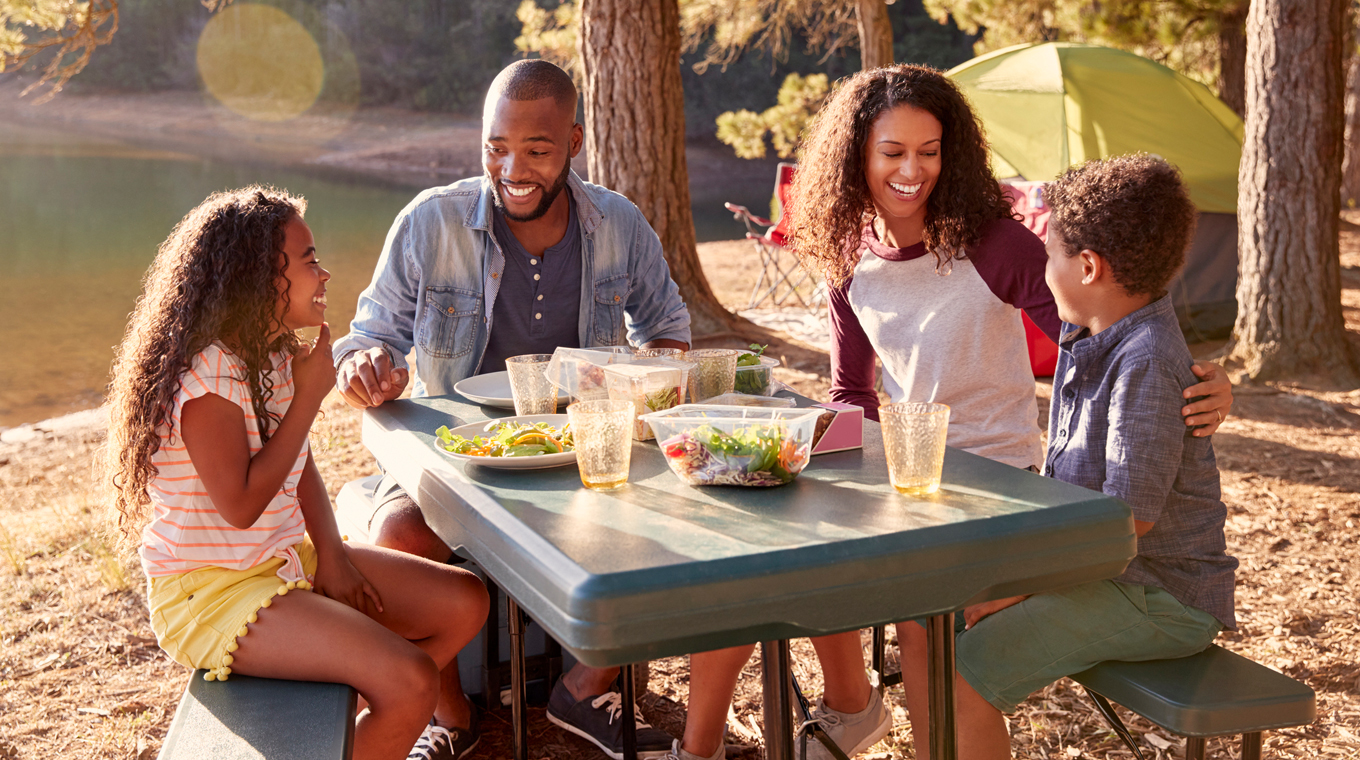
In this article
Summer is in full swing and families are itching to get out of the house and do something fun that builds memories. Camping during COVID-19 is feasible depending on where you want to go. If you are planning a camping trip during the pandemic, be mindful of the safety rules that pertain to camping in general and that pertain to COVID-19. Camping should be healthy not harmful.
New Jersey mom Megan Mwaura took her family camping and shared her experience. “Surprisingly, camping sites are still open but they only limit the number of campers. And campers are set far from each other," she told Mom.com. "It's easier to go camping if you have a camping van but if you're driving and setting up camp, you need to call your favorite camping site and book a slot.”
Is it safe to go camping during COVID?
Experts advise that camping and other outdoor activities are safe, as long as you follow safety protocols such as social distancing and wearing masks. "The final word on outdoor recreation? Of course, go out and be active. It's important for your mental and physical health," Claudia Finkelstein, an associate professor of family medicine at Michigan State University, told CNN. "But, choose wisely, be prepared and stay safe."
Here are our 12 safety tips for going camping during COVID-19:
Planning ahead: Be prepared for safely camping during Coronavirus

Coronavirus brings some new camping rules to your outdoor excursion. While park rangers want you to enjoy being outdoors, everyone wants to remain safe doing so.
Also, not surprisingly, as with many things during the pandemic there is a shortage of outdoor gear. “We’re probably in the early days of feeling some constraints on tents, sleeping bags and camping furniture,” Paul Calandrella, a merchandising manager at REI, told the New York Times. “One place that really caught us off guard was backpacking food,” he added.
All the more reason to plan – and buy — ahead. Here are a few tips to ensure a successful camping trip.
1. Check campsite openings
Many campsites are closed during the pandemic. The ones that are open are putting campers far from each other for social distancing and may have limited spots available. Call ahead of time and make a reservation.
2. Keep your mask with you and bring extras
You’ll need your mask when you interact with park staff and other campers. This is especially important at camp restrooms and other shared spaces. Since experts say that you should clean or change your mask after each wearing, make sure and bring extras so that you and your kids can change masks regularly.
3. Plan on separate tents
If you are camping with people who are not from your own household, don’t share tents.
4. Create a sanitization pack and include with your first aid kit
Get disinfectant wipes and spray along with antibacterial soap and hand sanitizer. Use these frequently, especially after coming in contact with items that are shared with other campers or part of the public campsite. Make sure and bring along a well-stocked first aid kit.
Follow these camping safety rules for your outdoor adventure during the pandemic

Standard safety rules apply whether you’re camping during Coronavirus or at any other time. Always know your surroundings and be prepared for accidents. Here are four camping safety rules to remember:
5. Don’t be daring
Dr. Linda E. Keyes, a member of the Wilderness Medical Society, reminds Mom.com readers, “Stay well within your abilities to avoid accidents that might require rescue, thus putting rescuers at risk and overtaxing healthcare facilities in rural areas.” This may be even more crucial during the pandemic, when emergency services and facilities are overburdened.
6. Practice social distancing
Just because you're outdoors doesn't mean that social distancing isn't required. Keep six feet between you and people you encounter. If camping with people outside your household, maintain a six foot distance from them as well.
7. Sanitize when using restrooms
Be cautious when using public restrooms. Use sanitizing wipes or spray disinfectant on toilet seats, door handles, and faucets. Allow the sanitizer 30 seconds to kill viruses and bacteria before touching them with your hands.
8. Camp in smaller groups
While camping is often more fun in larger groups, keeping your group within your family is safest when it comes to COVID-19. If you are going to gather with people outside of your family, keep groups to less than 10 people — and those that you know will follow safety protocols.
9. Pack food properly
Don’t bring a lot of perishable foods if you can’t properly store them for the trip — you don’t want to get sick on spoiled food. It’s best to use non-perishable items as much as possible and stock up on freeze-dried foods. As mentioned above, keep in mind that backpacking foods are in short supply because of COVID, so plan ahead. Lastly, cook everything thoroughly to prevent foodborne illnesses.
10. Build safe fires
Only use designated fire pits or small gas canister stoves for cooking. Wildfires are a real threat, especially during the summer heat. Don’t accidentally start one. Always make sure your campfires are properly snuffed out.
11. Avoid wild animals
In early August, a woman was drug unconscious by a protective mother bison when the woman approached her young to take a picture. Always keep a safe distance from wild animals.
Camping safety for kids

You want the kids to have fun and enjoy their time outdoors. Be sure to set rules with them for theirs and everyone’s safety. Here are camping safety tips for kids:
12. Stay together
Kids shouldn’t be allowed to wander off on their own, explore as a family. Establish clear boundaries around the campsite and make sure kids understand those boundaries and to socially distance from others not in your family.
13. Camp tools aren’t toys
There are a lot of interesting tools around a campsite. Things like pocket or hunting knives aren’t for kids to play with. Think about giving kids access to safe camp tools such as shovels and pails.
14. Don’t eat anything you find in the woods
It might look like a delicious berry, but you don’t want kids eating anything poisonous. Make sure kids understand that anything they find should be given to an adult to make sure it’s safe.
15. Avoid heatstroke
There’s a lot to do when camping and it’s often hot to boot. Make sure kids drink lots of water, wear sunscreen and protective clothing to prevent sunburn, and take breaks during the day.







